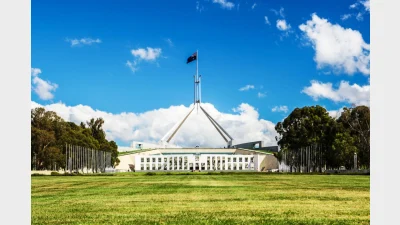Retirees’ cost crunch grows amid rising insurance premiums



The annual expenditure needed to comfortably retire in Australia grew to a record high in the December quarter, notching an annual increase of around 3.5 per cent.
The Association of Superannuation Funds Australia (ASFA) found couples would now require $72,148 per year while singles would need around $51,278 to fund a comfortable retirement, compared to $71,724 and $50,981 respectively in the September quarter.
The ASFA Comfortable Standard includes the cost of everyday expenses such as health, communication, clothing, and household goods.
“Retiree budgets have been under substantial pressure for the past two years due to the high cost of essential goods and services,” said ASFA chief executive Mary Delahunty.
Insurance prices grew 16.2 per cent in the 12 months to the December 2023 quarter, marking the strongest annual rise since March 2001. Higher reinsurance, natural disaster, and claims costs contributed to higher premiums for house, home contents, and motor vehicle insurance.
Similarly, electricity prices continued to rise 1.4 per cent in the December 2023 quarter, although it was far less than the 4.2 per cent rise in the September quarter. Over the past 12 months, electricity prices increased almost 7 per cent, benefiting from the introduction of the Energy Bill Relief Fund rebates from July 2023.
Electricity prices have risen 5.7 per cent since the June 2023 quarter and, excluding the Energy Bill Relief rebates, prices would have increased 17.6 per cent over this period, ASFA observed.
“The cost of medical services increased 1.2 per cent in the December quarter, and over the summer months the cost of domestic holiday travel and accommodation rose by 3.9 per cent,” Delahunty added.
Meanwhile, food inflation eased to 4.5 per cent, down from 4.8 per cent in the previous quarter and the peak of 9.2 per cent in December 2022.
Automotive fuel prices also fell 0.2 per cent in the December quarter. Unleaded petrol prices were volatile over the quarter, from a high of $2.13 per litre in early October, to a low of $1.78 per litre in mid-December.
ASFA observed that the quarterly increase in its retirement standard was about the same as the increase in the general CPI, with the annual increase lower than the 4.1 per cent increase in the general CPI.
“Fortunately, we are seeing price increases in the key categories that make up retiree budgets – home and content insurance, fruit and vegetables, fuel and electricity – begin to ease,” Delahunty said.
Recommended for you
ASFA has launched a central online hub to help super funds, employers and service providers prepare for Payday Super reforms.
The Super Members Council is calling on the government and regulators to impose additional safeguards to prevent superannuation switching harm and has put forward multiple suggestions for improvements.
The Assistant Treasurer has reaffirmed the government’s commitment to strengthening retirement outcomes, consumer protections and cyber resilience in superannuation.
The industry super fund has advanced reconciliation efforts with a new initiative focused on improving outcomes for First Nations members.










